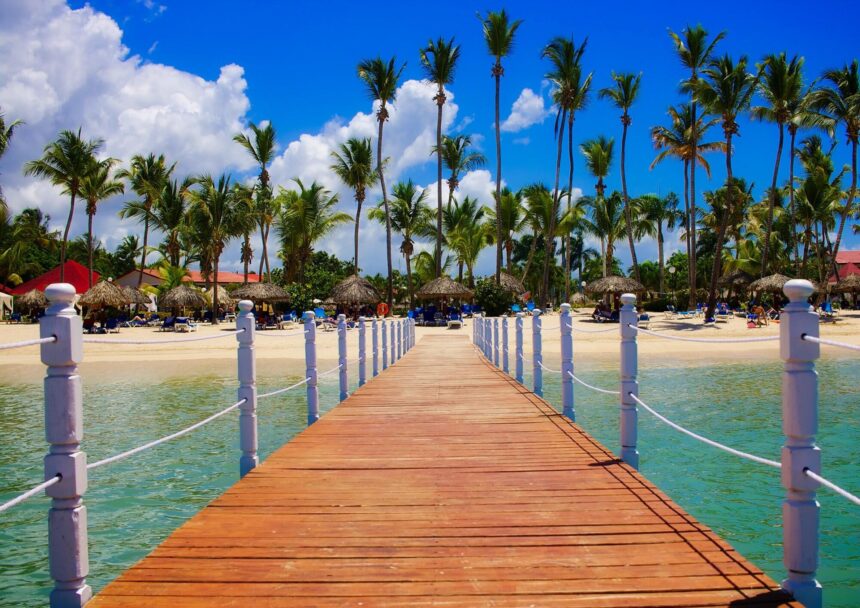Are you considering moving to the Dominican Republic? Understanding the cost of living in the Dominican Republic is crucial. This beautiful Caribbean nation attracts many expats and tourists alike.
With stunning beaches and rich culture, it’s no wonder. But what can you expect in expenses? This comprehensive guide will break down various costs like housing, food, and healthcare.
We’ll explore how prices vary across different regions. By the end, you’ll have a clearer picture of living here. Let’s dive into the details and uncover the true cost of living in the Dominican Republic!
Local Currency and Cost of Living Comparisons
The local currency in the Dominican Republic is the Dominican Peso (DOP). As of recent exchanges, one US dollar is approximately equivalent to 55-60 pesos, but this can fluctuate, so it’s wise to check current rates before making any financial decisions.
Understanding how far your money will go is essential for budgeting your new life in the Dominican Republic.
When comparing the cost of living here to that in the United States, you’ll find that many items can be cheaper. For example, dining out at local restaurants is much more affordable. Grocery prices vary; local produce is inexpensive, while imported goods can be pricier.
Housing Costs: Renting vs. Buying
For housing in the Dominican Republic, residents often weigh the options between renting and buying. Both choices come with distinct advantages and disadvantages. It can impact your budget and lifestyle.
Renting is a more flexible option. It allows newcomers to explore different neighborhoods and find a home that suits their needs without a long-term commitment.
Rental prices can vary, with many apartments available for as low as 15,000 pesos ($250) per month in desirable areas. It makes it an affordable choice for expats.
Buying property may be an attractive long-term investment, especially in a market like Dominican Republic real estate, which has seen growth over recent years. While purchasing a home requires a larger upfront payment, it can provide stability and potential appreciation in value over time. Prices for homes depend on location, size, and amenities, but many options cater to different budgets.
The decision to rent or buy should consider your financial situation, how long you plan to stay, and your preferences. Whether to rent or buy, understanding housing costs will help you make an informed choice as you settle into life in the Dominican Republic.
Grocery Prices: A Local’s Perspective
For grocery shopping in the Dominican Republic, you’ll find a mix of local and imported products available, each with its own price range. Local fruits and vegetables such as bananas, mangoes, and avocados are usually affordable. It often costs a few pesos per pound.
For example, a kilogram of fresh tomatoes might cost around 50 pesos (about $1). It makes it easy to enjoy healthy meals without breaking the bank.
Yet, if you’re looking for imported items, like cereals or snacks from the US, be prepared to pay more. These products can be pricey due to shipping costs, sometimes two or three times the price you might find back home.
Many local grocery stores and markets offer good deals on basic staples like rice, beans, and chicken. Buying in bulk can help save even more. Supermarkets often have weekly specials, which can also help keep your grocery bills low.
Shopping at local markets gives you the chance to buy fresh produce and support local farmers. Supermarkets provide convenience and a wider selection of goods. Being aware of where to shop and what to buy can help you manage your grocery costs.
Dining Out: Exploring the Local Cuisine
Eating out in the Dominican Republic is an enjoyable and affordable experience. You can find a variety of dining options that cater to different tastes and budgets. From small roadside stands to upscale restaurants, the choices are endless. Local food, known as comida típica, includes delicious dishes such as:
- mangú (mashed plantains)
- sancocho (a hearty stew)
- pescado frito (fried fish)
These meals are often rich in flavor and use fresh ingredients. They are a must-try for newcomers. When dining out, you’ll notice that prices are lower than in many Western countries.
Many places also offer lunchtime specials. It can be an excellent way to enjoy traditional dishes at a lower cost.
Street food is another part of the culinary culture that is worth exploring. Vendors sell tasty snacks like empanadas and arepas, perfect for a quick bite.
Enjoying food in the Dominican Republic also gives you the chance to connect with locals. Dining out can be a delightful adventure filled with new flavors and experiences that showcase vibrant local cuisine.
Transportation Expenses: Getting Around the Island
Getting around the Dominican Republic is easy and can fit various budgets. Public transportation options include buses and carros públicos, shared taxis that travel set routes.
These are affordable choices, with fares costing between 20 to 75 pesos (about $0.35 to $1.25) depending on the distance. For those looking for more comfort, private taxis and rideshare services like Uber are available in larger cities, although they tend to be more expensive.
A typical ride within a city might cost around 200 to 500 pesos ($3.50 to $9). It makes it a convenient alternative for tourists. If you plan to explore more remote areas or nearby towns, renting a car is a popular option.
Rental prices can range from 1,500 to 3,500 pesos per day ($25 to $60), plus the cost of fuel. Remember that driving is done on the right side of the road, and traffic can be busier in urban areas.
For a more local experience, consider using motorbike taxis, known as motoconchos. These are an affordable and fast way to navigate traffic, with fares often costing less than 100 pesos ($2). Regardless of the mode of transport you choose, understanding your options can help you budget effectively and enjoy your time on the island.
Utilities: Understanding Monthly Bills
When living in the Dominican Republic, understanding your monthly utility bills is essential for managing your budget. The main utilities you will need include electricity, water, gas, internet, and trash collection.
Electricity costs can vary depending on your usage and the size of your home. On average, a monthly electricity bill might range from 1,500 to 3,500 pesos ($25 to $60). Remember that using air conditioning and other appliances can raise your bill, especially during the hot months.
Water bills tend to be quite affordable, usually costing between 300 to 800 pesos ($5 to $15) each month, depending on your consumption. Gas is used mainly for cooking and heating water, and you might spend around 1,000 to 1,500 pesos ($17 to $25) monthly if you rely on gas for these purposes.
Internet access is another important utility. Prices for a home internet service can range from 1,000 to 3,000 pesos ($17 to $50), depending on the speed and provider.
Trash collection is often included in your water bill, so you won’t need to worry much about it as a separate expense. By understanding these utilities and their costs, you can better plan your monthly budget and enjoy comfortable living in the Dominican Republic.
Healthcare: Insurance and Medical Costs
Healthcare in the Dominican Republic is generally affordable, but understanding the system is important for expats. The country has both public and private healthcare options.
Public healthcare is available to all residents, but it can be crowded and may not provide the same level of care as private facilities. Many expats choose to use private hospitals and clinics. These facilities offer shorter wait times and more comprehensive services.
For health insurance, having coverage is highly recommended. Many local and international insurance companies offer plans that fit different budgets and needs.
Basic health insurance can cost anywhere from $30 to $100 per month, depending on the coverage. These plans include visits to doctors, hospital stays, and emergency services.
When visiting a doctor or specialist, the costs are low compared to the United States. It’s wise to explore the options available and find a health insurance plan that suits your needs. By doing so, you ensure access to quality healthcare while living in the Dominican Republic.
Education: Costs for Families and Expats
When considering a move to the Dominican Republic with your family, it’s essential to look into the education system and the related costs. The country offers a mix of public and private schools, each with different fee structures.
Public schools are tuition-free, but they may lack resources and facilities compared to private institutions. Parents often choose private schools for a better quality of education, especially for their younger children.
Private school fees can vary, depending on the school’s reputation and location. On average, you might expect to pay between 15,000 to 30,000 pesos ($250 to $500) per month for elementary and high school education.
Some international schools cater to expats, offering bilingual education and curriculums aligned with British or American systems. Tuition at these schools can be higher, ranging from 30,000 to 70,000 pesos ($500 to $1,200) monthly.
For tuition, families should also budget for additional expenses, such as uniforms, textbooks, and extracurricular activities, which can add several thousand pesos each year. It’s advisable to research schools in advance and consider location, as transport costs may also influence your education expenses. By understanding these factors, expat families can make informed decisions about their children’s education in the Dominican Republic.
Entertainment and Leisure: Enjoying Life in the DR
Living in the Dominican Republic offers a vibrant lifestyle filled with exciting entertainment and leisure activities. The country is known for its beautiful beaches, lively festivals, and rich culture, providing plenty of options to relax and have fun.
Many locals and expats enjoy spending weekends at the beach, soaking up the sun, and swimming in the warm waters. Popular spots like Punta Cana and Samaná are great for beach activities, water sports, and stunning sunsets.
In beach fun, the Dominican Republic hosts various cultural festivals throughout the year. These events are a fantastic way to immerse yourself in local traditions while enjoying music, dance, and delicious food. Merengue and bachata are popular dance styles that you can often see at these festivals, and you might even join in!
For those who enjoy nature, exploring national parks and reserves is a must. Places like Los Haitises National Park and Jarabacoa offer hiking trails, waterfalls, and opportunities for birdwatching.
In cities, you can find cinemas, theatres, and local art galleries to visit. Whether you prefer sunbathing, cultural experiences, or outdoor adventures, life in the Dominican Republic provides endless opportunities for entertainment and leisure, making it a fun place to live.
Taxes: Know Your Obligations
When living in the Dominican Republic, it’s vital to understand your tax obligations to avoid any legal issues. The tax system in the country can be different from what you may be used to.
You should know that residents are taxed on their worldwide income, which includes money earned both inside and outside the country. If you have income from abroad, you will need to report it.
The primary taxes you may encounter are income tax, property tax, and sales tax. Income tax rates vary depending on how much you earn, ranging from 15% to 25%.
If you own property, expect to pay an annual property tax based on its value. Additionally, sales tax, known as ITBIS, is currently set at 18%, applied to most goods and services.
As a foreign resident or expat, it’s advisable to get help from a local accountant or tax advisor who can guide you through filing taxes. This ensures you follow local laws and take advantage of any available deductions.
Also, keep track of any required tax forms and deadlines throughout the year. Being informed and organized will make managing your taxes much easier as you adapt to life in the Dominican Republic.
Learn About Breaking Down the Cost of Living in the Dominican Republic
Understanding the cost of living in the Dominican Republic is essential. A thorough cost analysis helps potential expats make informed decisions.
Expenses are generally lower compared to many Western countries. Budgeting for housing, groceries, and utilities is crucial.
Dining out and transportation costs provide affordable options. Education and healthcare options vary in price and quality. You can enjoy a comfortable lifestyle while managing costs.
Did you find this article helpful? If so, check out the rest of our site for more informative content.














